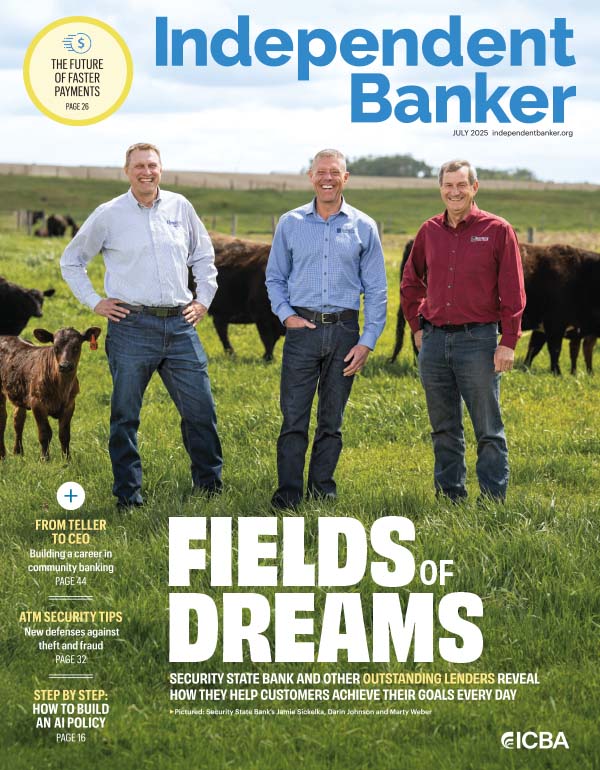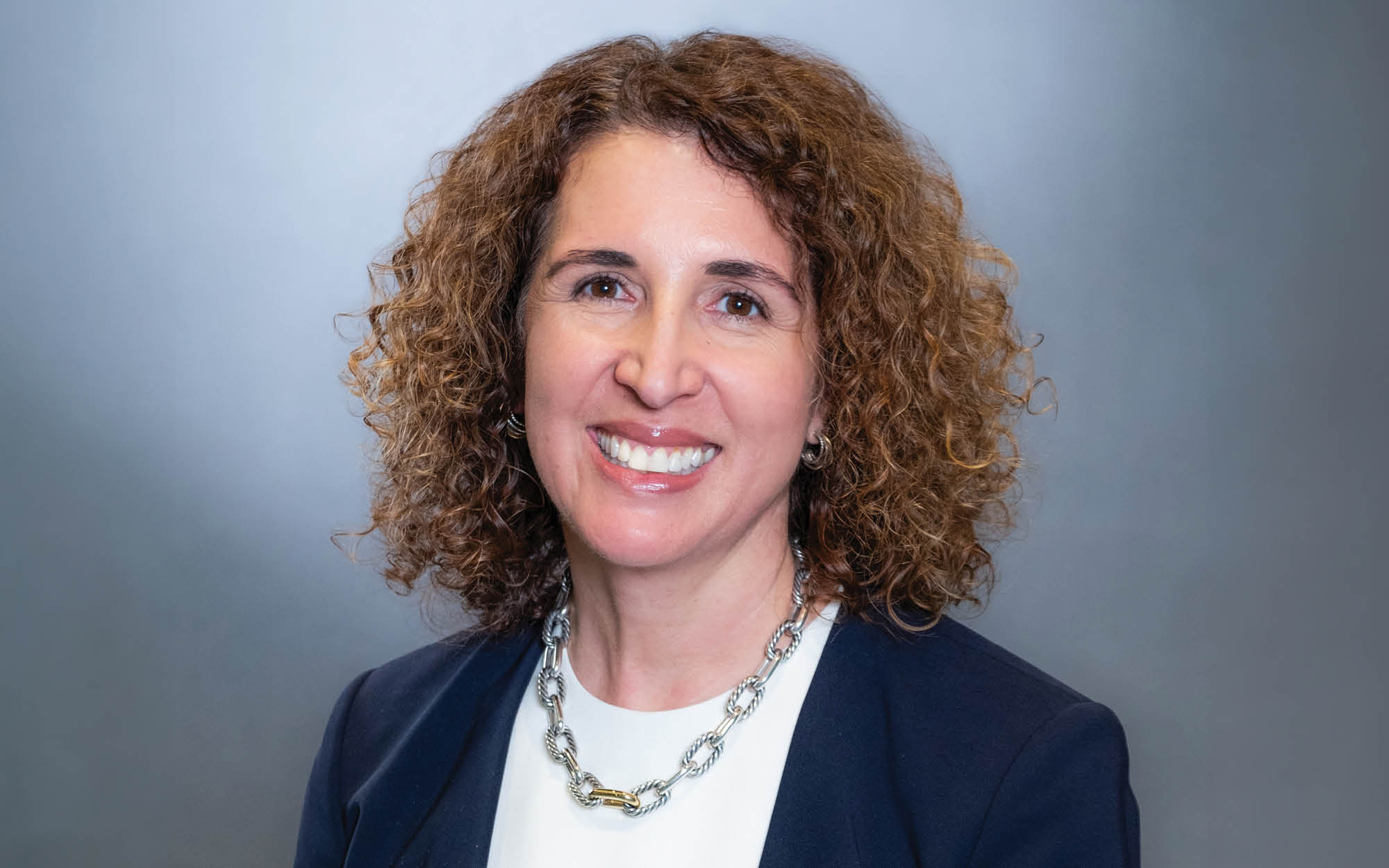![]()
Where I’ll be
this month
I’ll be attending the Maine Bankers Convention and revving up to continue advocating for community banks this fall.
They say imitation is the greatest form of flattery, but when it comes to financial services, it doesn’t make for a fair banking environment. Just look at credit unions, trying to position themselves as “community” organizations without having to demonstrate they meet Community Reinvestment Act requirements. Or industrial loan companies, with holding companies not subject to bank compliance reviews. Or the Farm Credit System, which wants to compete with community banks but doesn’t want to be regulated like them. Or megabanks that are too big to fail, resulting in community banks being faced with outsized regulation. The list goes on.
We need a level playing field. As outlined in our recent report, Finding Balance: How Well-Intended Policies Hamper Small Business Lending and Undermine Relationship Banking, the disproportionate regulatory burden created for individual community banks makes it nearly impossible to compete with those that can position their products and services free of regulatory constraints. They can avoid the heavy cost of compliance while ignoring the impact these imbalances have on our industry.
At the end of the day, it’s the customer who will ultimately pay the price if unbalanced regulations are allowed to continue. They will face challenges when they can’t get an emergency loan during a pandemic, like we saw with the Paycheck Protection Program. They will struggle when their small business loan needs don’t meet standardized checkbox requirements. They will lose out when they don’t qualify for a mortgage because those same checkbox requirements apply in consumer environments.
Right now, community banks step up in those situations, providing support based on the deep relationships they have in their communities. But as more and more regulations come down on us, our ability to respond may be hindered, leaving our customers and communities without fair options.
That’s why community banker engagement and grassroots actions are so incredibly important. We have to speak up and demonstrate how the lack of consistent regulation creates issues. We have to deliver stories that demonstrate the egregious acts committed by nonbanks acting like banks.
Congress needs to hear not just that community banks think it’s an unfair playing field; it also needs to understand the harm this imbalance does to our communities. We encourage you to raise your voice and visit ICBA’s Action Center (icba.quorum.us) for resources to help.
In the meantime, community banks have a message for our imitators: If you want to be like us, you need to up your game and play by the same rules.






